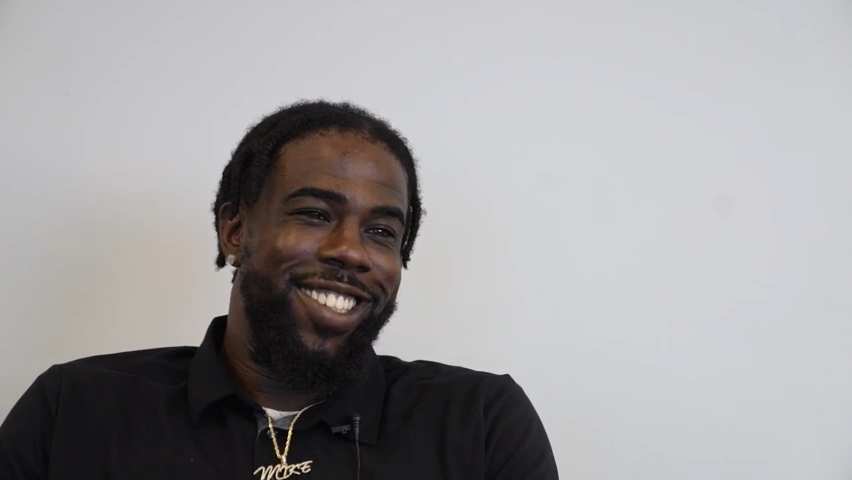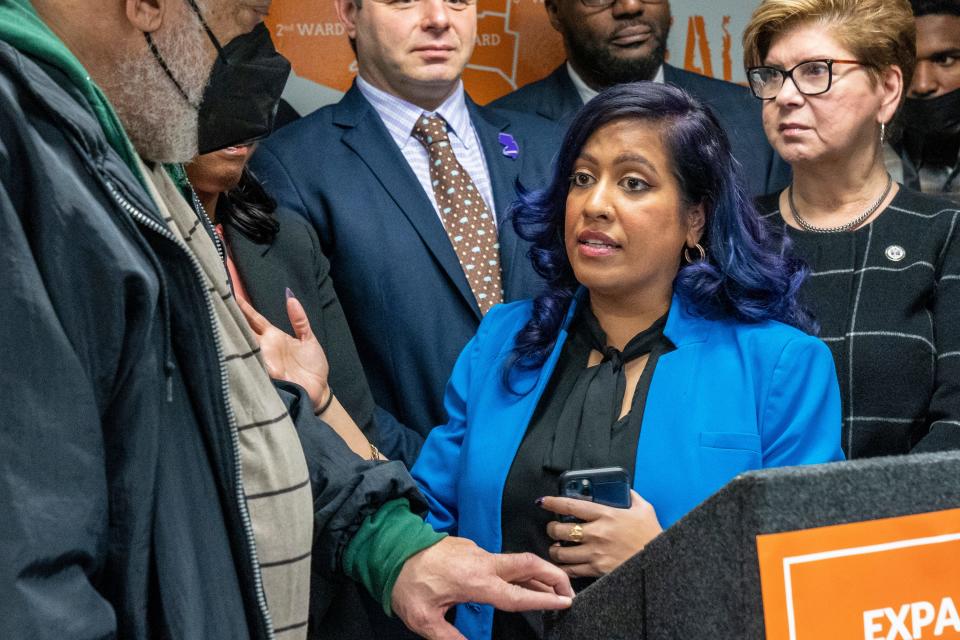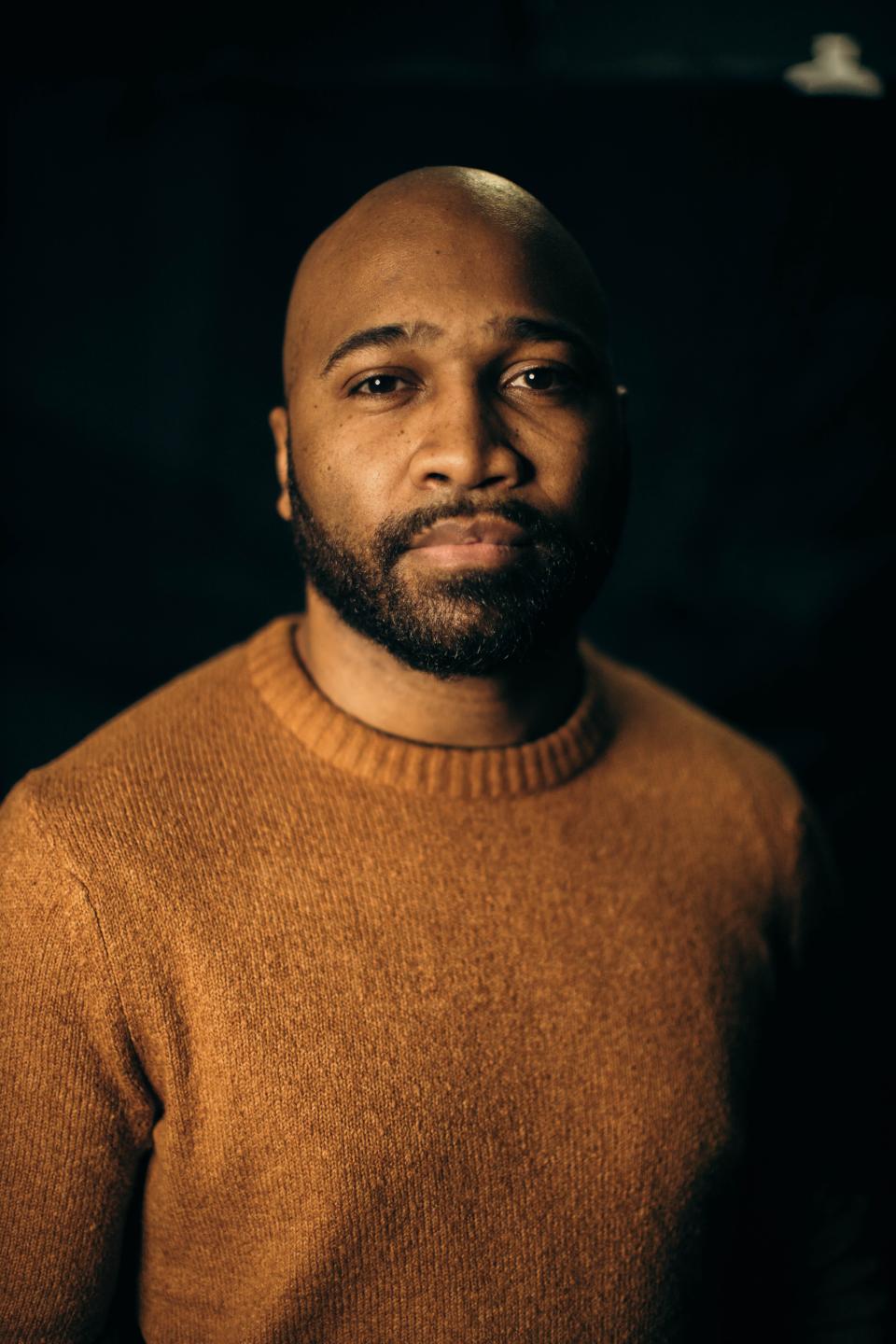This is why we want a federal investigation in the death of Najee Seabrooks | Opinion
Najee Seabrooks was only 31. He was a son, a father and a championship basketball player.
He was also a survivor of gun violence who channeled his own trauma to heal his community through his work at the Paterson Healing Collective, a hospital-based violence intervention program which provides support and intervention for victims of violence.

Najee did exactly what we would want someone in his situation to do. He used his own experiences, which gave him a unique ability to connect with people on the street, to broker non-violent solutions to conflict.
But when Najee himself needed that non-violent intervention, it was denied to him.
On March 3, in the midst of a mental health crisis, Najee — in addition to calling 911 — called his colleagues at PHC. He knew he needed compassionate support to talk him through his struggle. He knew he needed a peaceful way out.
His colleagues showed up ready to help — but Paterson police stopped them.
Instead, they shot him to death — alone, in his moment of need.
We don’t know all the details yet of what happened inside that apartment.
But we do know that had police allowed a non-violent solution to occur, Najee would likely be alive.
But as we’ve learned too often, non-violence is often not the way of police, especially when engaging with Black men.
Exclusive: Najee Seabrooks in his own words: 'Try to bring back some love' to Paterson
Transcript:Transcript: What Najee Seabrooks said in exclusive NorthJersey.com interview
Black and Brown Paterson residents face violence
And the Paterson Police Department is no stranger to the use of violence. They have a history of excessive use of force — in addition to illegal searches and seizures and corruption — disproportionately felt by Black and Brown residents.
Consider:
Between October 2020 and December 2022, one of the officers who shot Najee used force fifteen times. He, along with another officer, used force more than any other PPD officer.
Another PPD officer is facing charges for shooting Khalif Cooper in the back in 2022, causing him to be paralyzed. Cooper was unarmed.
A PPD officer shot and killed Thelonious McKnight in 2021.
Paterson is being sued for the 2019 wrongful death of Jameek Lowery while in police custody after police allegedly struck him during a health emergency.
A former PPD officer is under indictment for allegedly tackling a detained man in 2018, striking him in the head with a flashlight causing him a fractured nose, loss of teeth and head and face lacerations. The same officer also has an open indictment for allegedly assaulting another man in 2021, turning off his body camera, tampering with public records and writing a false police report.
These are just a few examples. The Paterson Police Department — like so many across America — has a violence problem. It has a culture problem — one that must be addressed from top to bottom.
Race problems need federal intervention
And it has a race problem.
Despite Black people being 24.7% of Paterson’s population, they account for 49% of arrests and 43% of officer-involved killings. According to the New Jersey Attorney General's Office, between October 2020 and December 2022, PPD used force on 495 people, 257 or 52% of whom were Black.
The multi-layered problem of police violence needs a multi-layered approach.
In Paterson, because PPD’s misconduct and civil rights violations are so widespread, and because PPD has shown a consistent lack of accountability, federal intervention is needed. So this week, our organizations and over 40 others called on the United States Department of Justice to intervene, investigate and take necessary action.
The DOJ is in the process of bringing accountability to the police department in Louisville, Kentucky, where Breonna Taylor was killed by police. It is also investigating the Memphis Police Department, as a result of Tyre Nichols’ murder by police. Paterson’s residents deserve no less.
The state of New Jersey, too, must seek accountability from PPD, including through an attorney general investigation as required by law. The legislature must prioritize passing the package of bills that’s been pending since George Floyd’s murder to establish civilian review boards, completely ban chokeholds, increase transparency and eliminate qualified immunity.
And there must be significant support for building up non-law enforcement responses to incidents that don’t require police. One that allows mental health professionals to be actual first responders.
Najee Seabrooks and others like him needed and deserved mental health support, not a death sentence.
Yannick Wood is the director of the Criminal Justice Reform Program at the New Jersey Institute for Social Justice.
Liza Chowdhury is the project director of Reimagining Justice/Paterson Healing Collective.

Zellie Thomas is the lead organizer for Black Lives Matter Paterson.

This article originally appeared on NorthJersey.com: Najee Seabrooks Paterson NJ federal investigation needed
